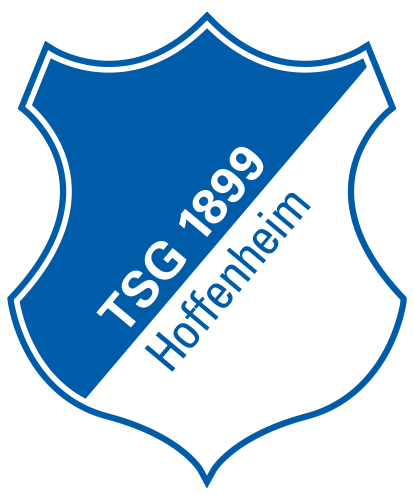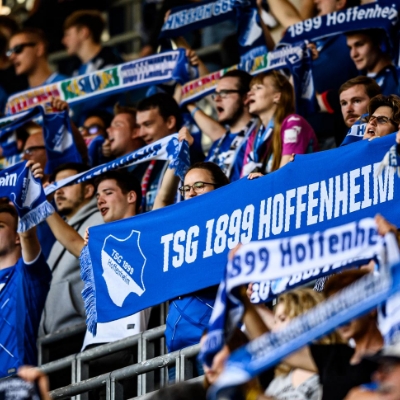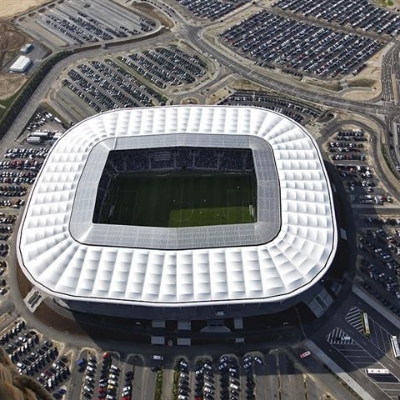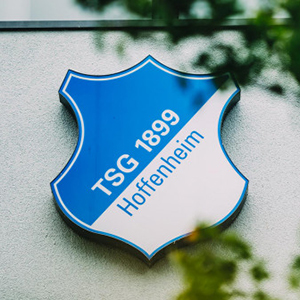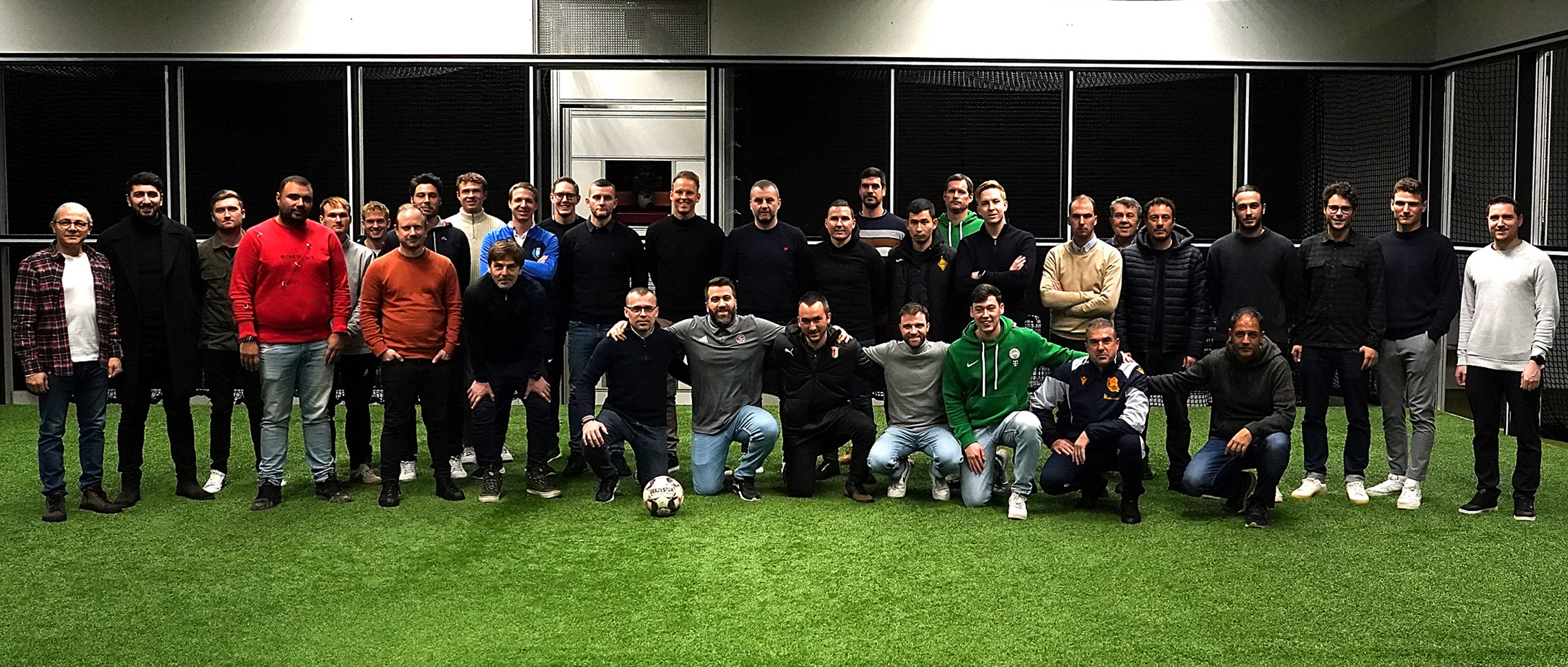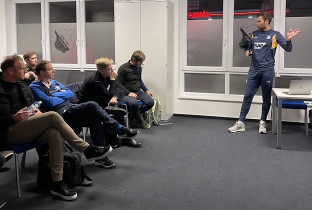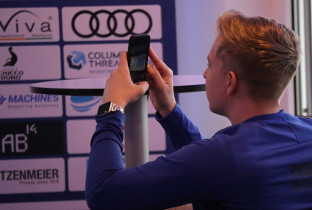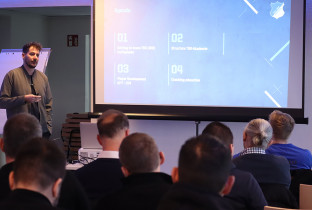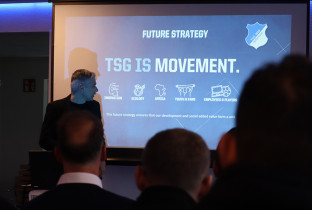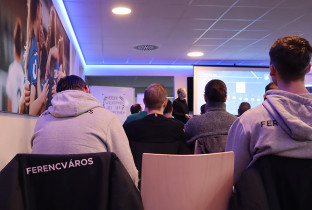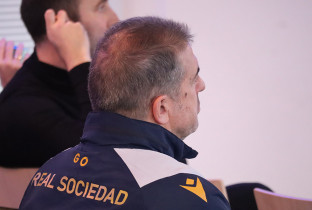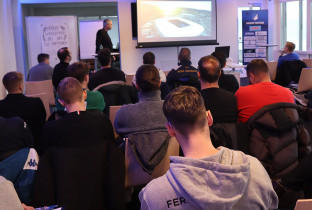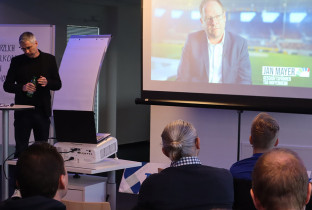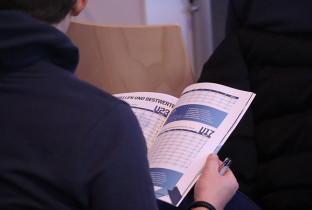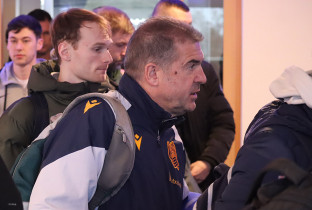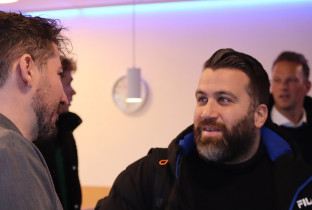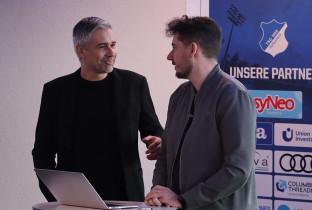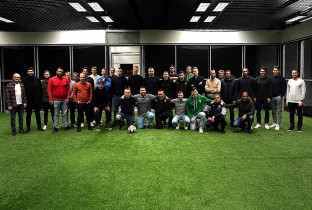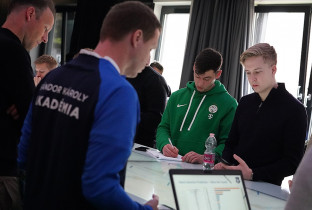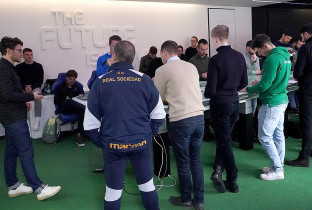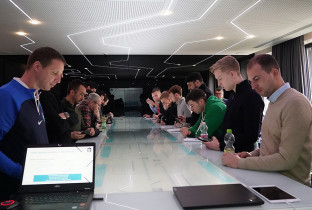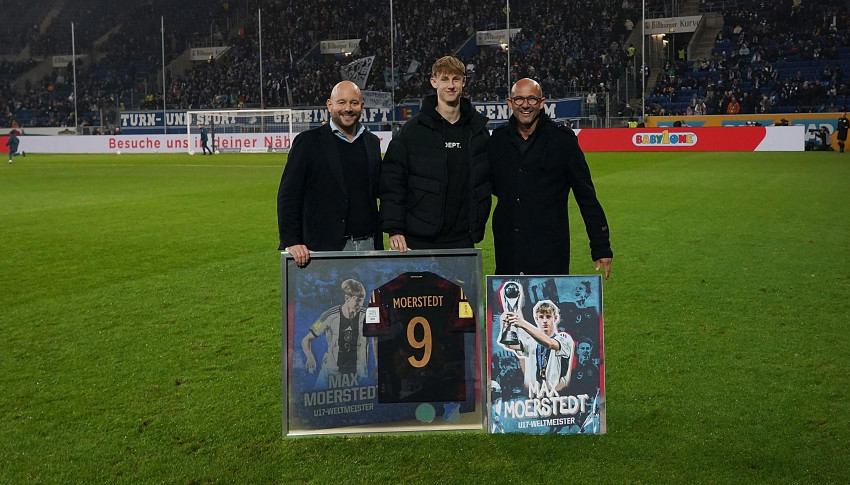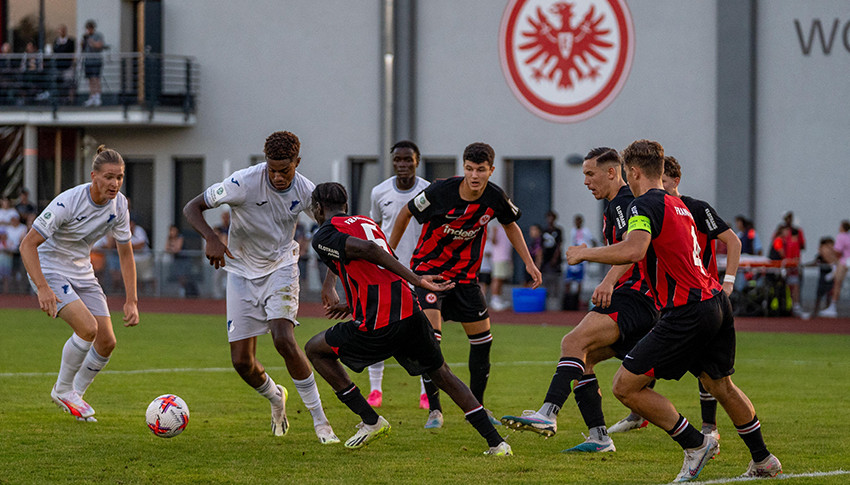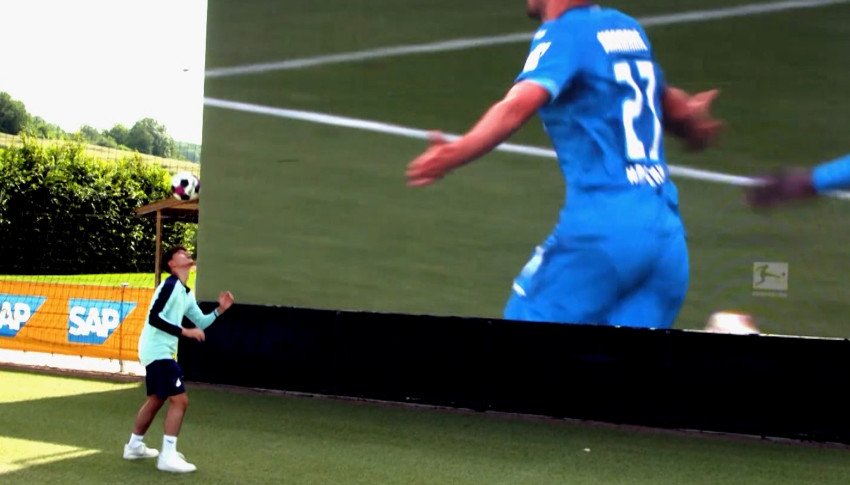ECA meeting in Hoffenheim
Bayern Munich and RB Leipzig both sent staff to Hoffenheim, while representatives from AS Monaco, Glasgow Rangers and Real Sociedad were also in attendance. These were just a few of the clubs that attended the European Club Association (ECA) meeting in the VIP room of Hoffenheim's Dietmar Hopp Stadium, which kicked off on Monday afternoon.
The guests were welcomed by Dr Sascha Härtel ( head of performance diagnostics and science coordination), Arne Stratmann (coordinator for U12 to U14 level) and René Ottinger (youth director). The meeting was opened by Pouya Yaghoubinia, football development manager of the ECA, who thanked the TSG representatives for the opportunity to take a look behind the scenes and said: "Our aim in the ECA is to learn from each other, to network and to grow together. We meet here as colleagues and will part as friends at the end of the meeting."
TSG Hoffenheim put together a varied programme in order to create a productive official forum for all participants, which was complemented by profitable discussions on the sidelines and mainly consisted of presentations related to the TSG Academy. It goes without saying that the programme also highlighted the professional sector in Hoffenheim. Sascha Härtel kicked things off with an overview of TSG's fundamental philosophy at all levels of the club, which is essentially based on innovation. For a club from a rural location to be able to keep up with the big names, it is important to be creative and offer talented players an environment that stands out. Härtel gave an insight into TSG's infrastructure and the modern training facilities, which visitors were able to discover for themselves on the following days - such as the ResearchLab and the Footbonauts.
In his presentation, Arne Stratmann focused, among other things, on the special approaches and institutions that have been established for years in Hoffenheim's youth system. For example, he mentioned to the youth prospects team and the club's mini-football programme.
The theoretical overview was followed by practical presentations. The ECA guests attended several training sessions for Hoffenheim's youth teams, including team training for the U12s and individual training for the U19s, and were also given insights into video analysis, goalkeeper philosophy and sports psychology support for the academy talents. TSG had provided each participant with a large copy of the recently published brochure and the academy guide for the current season so that they could continue to inform themselves about the work of Hoffenheim youth football after the conference. The guests were happy to take the copies home with them and were full of praise for the event.
Reactions to the ECA meeting at TSG Hoffenheim
Aitor Ugarte (fitness coach, Athletic Bilbao): ''TSG Hoffenheim and their youth academy are very well known in Bilbao. I was therefore delighted to be able to take part in this visit and am very pleased with what I saw here. I was particularly impressed by the presentation of the concept from KPT to U14 and the way in which the Footbonaut is integrated into the daily training programme of the various teams.''
Peter Horväth (technical director, Puskas Academy): ''I came to Hoffenheim with no expectations and a simple curiosity. I was very impressed by the presentations and, above all, the openness with which the speakers gave us insights into their work. At Puskas Academy, our focus is on the younger age groups, so these presentations were of particular interest to me. It was also exciting to see how young and ambitious many coaches in the TSG Academy are and how the division of work in different centres functions.''
Zsolt Szekely (head of coaches, MTK Budapest, Sándor Károly Academy): "I always enjoy looking at other youth centres, although I am of course aware that everyone always presents the best side of themselves, and sometimes the impressive presentations aren't representative of the reality. Nevertheless, the organisers did an excellent job and I was surprised at how openly and honestly they talked about talent development. The TSG academy opened its doors to the visitors and gave an honest and authentic insight. Observing the training sessions and talking to TSG employees on the sidelines, as well as those from other clubs, was an enriching experience for me."
René Ottinger (youth leader, TSG academy): ''We have been invited to speak at an ECA event in the past and it was an honour for us to have the chance to organise this event with them and make a presentation to so many top clubs. The positive feedback we received regarding the openness of our presentations, our strength in innovation and our data-driven work serves as confirmation that we should continue doing things our way. We didn't just show glossy presentations, but also made a lot of things tangible through tours and visits to practical units, all of which was well received.''
About the ECA
The European Club Association (ECA), based in Nyon, Switzerland, was founded in January 2008. It is an autonomous and independent organisation representing the interests of European football clubs. Karl-Heinz Rummenigge was chairman until 2017. The Italian Andrea Agnelli, president of Juventus, then headed the organisation for four years; the current chairman is Nasser al-Khelaïfi, president of Paris Saint-Germain.
The ECA's achievements include involvement in the development of an international match calendar, the establishment of a club protection programme (insurance of players' salaries in the event of injury during international duty), the distribution of EURO profits and the strengthening of club interests in UEFA's decision-making processes.
The ECA also issues publications that influence the development of football. The ECA report on youth academies in Europe, first published in 2012, serves as a point of reference and offers a comparative look at different approaches and philosophies of youth academies across Europe.


